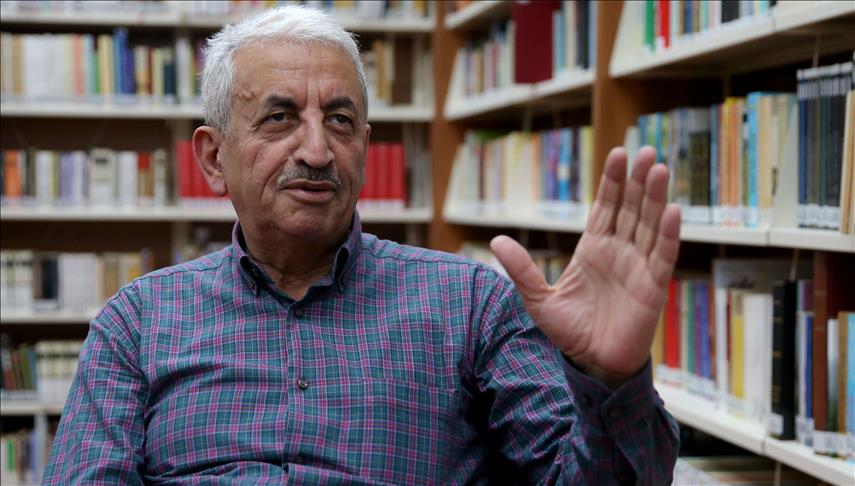 Turkish poet Ebubekir Eroglu
Turkish poet Ebubekir Eroglu
By Ahmet Sait Akcay
ISTANBUL
A leading Turkish poet and intellectual said Turkey is more involved in accommodating knowledge than producing it, pointing to the slowness of intellectual activities.
“We are not producing knowledge, and instead we are more willing to import most of the produced knowledge regarding our language and history,” Ebubekir Eroglu told Anadolu Agency in an exclusive interview.
“In a nutshell, we are falling short of our building capacity to compete in areas concerned with our culture at the international level,” he said.
Eroglu, who teaches Ottoman and Turkish literature at Istanbul’s Fatih Sultan Mehmet University, and is the author of several volumes of poetry and a dozen volumes of essays, said the main obstacle intellectuals face is not being able to modernize cultural perspectives.
“To reach that capacity,” he said, “one should deal with classical literature and culture dating back to the Ottoman and Islamic traditional and philosophical era as well as modern world literature.”
He went on to say that intellectual life in Turkey has focused more on shaping ideas of the future.
"Current events always play a crucial role in defining the scope of government and political parties. This has created a gap between intellectual and political perspectives.
"Intellectual efforts can only draw the world’s attention through an established contemporary approach as well as self-confidence," he argued.
He also complained of stereotypical forms of thinking in general, blaming these on globalization, which imposed hegemony on local cultures and also led people to be wary of such creativity.
- Intellectual life stuck in popular culture
He highlighted the contrast between the popular and the intellectual: adding: “Turkey’s intellectual life has recently been reduced to popular debates on television shows. For decades there has been no scientific or intellectual progress worth mentioning. Intellectual culture now is under the thumb of popular culture.”
TV shows and news analyses are signs of this, and intellectualism has been equated with quotidian comments, he said.
He also spoke on Turkey’s current identity crisis, saying that the traumatic face of society should have been addressed long ago.
“Had the people of Turkey properly mourned the trauma of World War I and its aftermath, the dilemma of identity would have been easier to tackle,” he said.
“We emerged from World War I with many losses, from the Balkans to the Caucasus. The people [from former Ottoman lands] who suffered and were forced to emigrate to Anatolia since then have not been able to mourn their dead,” he said.
He added that a society which has suffered such a defeat has since been able to recover from its losses. He attributed “society’s traumatic behavior to being left unhealed from wounds, it was left without therapy.”
- Originality in art
Turning to Turkish poetry, he said the most original part of Turkish poetry might be transferring and rearticulating the classics in modern form, as this could open channels into world literature.
Poetry should feature the world of imagination which is unique to us to attract other readers, he explained.
“Originality does not occur by imitating and admiring art,” he said.
Eroglu’s poetry collections mostly deal with classical literature and imagination in a very modernist style, and his critical essays are concerned with the structure of Ottoman and modern Turkish poetry.
Anadolu Agency website contains only a portion of the news stories offered to subscribers in the AA News Broadcasting System (HAS), and in summarized form. Please contact us for subscription options.

